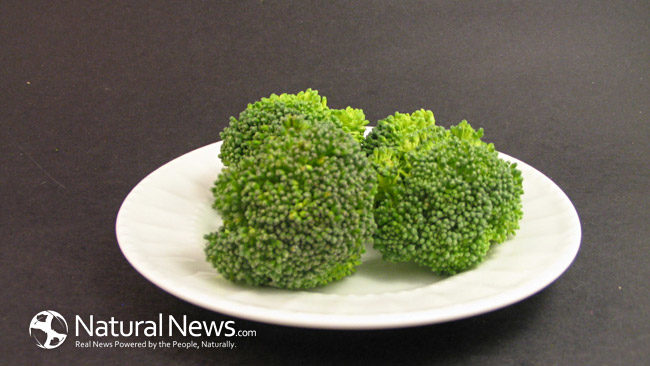Living with ADD/ADHD means adopting an entirely new dietary approach. According to the ADD Summit page here (which starts October 28th), the average kid is “eating up to 49 pounds of sugar per year!” Candy, foods with dyes, artificial sweeteners and simple carbs should be significantly lessened, if not avoided altogether. Quite simply, those with the disorder have more food sensitivities, and their symptoms worsen when such foods are consumed. It’s best to eat foods that optimize brain function and produce a calming effect.
Here are some of the top foods to help keep your ADD/ADHD symptoms at bay:
1. Broccoli: Studies show that toxins in the foods you eat are directly related to the adverse effects in the body, including the development and worsening of neurological disorders. Chelation therapy is sometimes used by those with ADD/ADHD, but broccoli has the ability to remove heavy metals naturally. Due to its high levels of Vitamin C and antioxidant properties, broccoli is considered to act as a chelator since it binds to and eliminates heavy metals. Always try to select organic vegetables.
2. Brazil nuts: 95% of children are deficient in magnesium and a Gallup Poll survey shows that 79% of adults 55 and over are eating less than the recommended dietary allowance (RDA) of magnesium. Magnesium helps stabilize blood sugar, absorb other nutrients and relax body and mind which helps with improved sleep and diminished hyperactivity. Therefore, a person with ADD/ADHD wants to make sure they’re up on their magnesium intake. The Brazil nut is considered a top magnesium nut source (107 mg of the mineral in each 1-oz. serving), so adding this nut to your diet is beneficial.
3. Pumpkin Seeds: studies show that children with ADHD have zinc levels that are just two-thirds the level of those without the disorder and that one of the commonalities those with ADD/ADHD share is zinc deficiency. Not having enough of this important mineral can lead to memory and learning problems, so eating foods high in zinc is essential. Pumpkin seeds are a good source of zinc as are sunflower and sesame seeds.
4. Apples: David L. Katz, MD, director of the Yale-Griffin Prevention Research Center and president of the nonprofit Turn the Tide Foundation says, “. . . eating a lot of simple carbohydrates and refined starches, which continually causes your blood sugar to spike and fall, may throw off the hormones that regulate metabolism. This can derail the body’s natural rhythms and cause wakefulness at night.” Complex carbs like the ones in apples can aid in sleep, which many people with ADD/ADHD struggle with.
5. Lean Beef: Laura Stevens, M.S., a Purdue University nutritionist says “. . . the body makes brain-awakening neurotransmitters when you eat protein” and suggests daily incorporation of it in your diet. If possible, make sure you eat grass-fed beef. Eggs too, are a good source of protein.
To help make others aware of ADD/ADHD symptoms and news, or to learn more yourself, you can download and distribute related materials found at the ADDA (Attention Deficit Disorder Association) website via this link: http://www.adhdawarenessmonth.org/resources/ (opens in new window)
You may also sign up for the “Something Doesn’t Add Up About ADD!” Summit that starts on October 28th. Just…
1) Go to this page (note: affiliate link)
2) Scroll to the bottom
3) Add your name and email
… and you will be notified when the first interview is available. There will be inspiring interviews with doctors, teachers, parents and passionate health-seekers made available to you. Sign up here.
Sources for this article include:
www.wishsummit.com
www.webmd.com
www.additudemag.com
www.nutritionbreakthroughs.com
ezinearticles.com
www.additudemag.com
www.livestrong.com
www.oprah.com
www.addadhdblog.com
www.naturalnews.com





